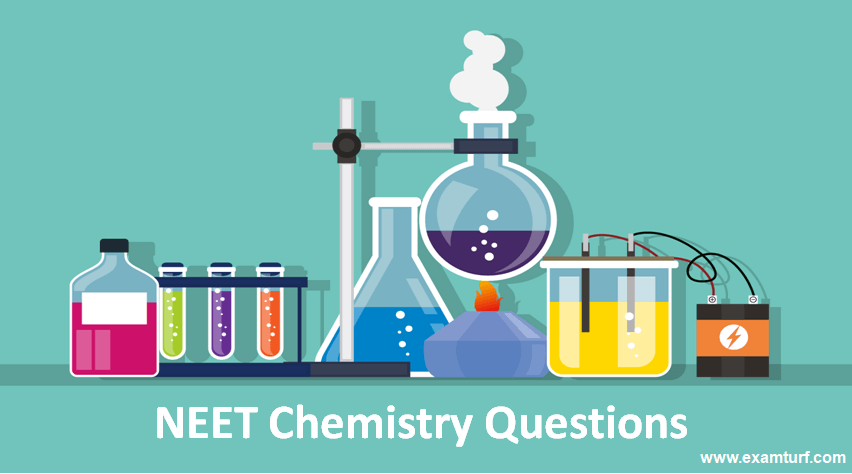
Introduction To NEET
The following article provides an outline for NEET Chemistry Questions. The National Test Agency, often known as NTA, conducts the National Eligibility Cument Entrance Test (NEET) every year. NEET is a test for students who have chosen biology as their subject for 11th and 12th grades. NEET is an exam that determines a candidate’s eligibility for MBBS or BDS courses in India. It is a competitive exam, and like any other competitive exam, it is one of the most difficult to pass in order to gain admission to elite colleges. This exam is held once a year, however candidates have requested that it be held twice a year so that students do not have to wait a year to take the next one.
Key Takeaways
- NEET is an entrance exam for MBBS and BDS.
- Chemistry holds a 25% share in the exam, that is 45 questions worth 180 marks.
- The chemistry syllabus of classes 11th and 12th is enough.
- Books for different chemistry sections.
- Important topics candidate must cover, these topics will build basics and can be extrapolated to answer other questions too.
Complete Details Of NEET Chemistry Questions
NEET mainly asks questions from class 11th and 12th courses. The syllabus includes the majority of Biology, Physics, and Chemistry disciplines. Biology accounts for 50% of the exam material, with physics accounting for 25% and chemistry accounting for the other 25%. It consists of 45 questions totaling 180 points.
1. NEET Chemistry Syllabus
| 11th Class Topics | 12th Class Topics |
| Some Basic Concepts of Chemistry | Surface Chemistry |
| Molecular Structure & Chemical Bonding | Solutions |
| S-Block Element (Alkaline, Alkali & earth metals) | Biomolecules |
| States of Matter: Gases and Liquids | Chemical Kinetics |
| Thermodynamics | Coordination Compounds |
| Environmental Chemistry | Alcohols, Phenols, Ethers |
| Equilibrium | p-Block Elements |
| Redox Reactions | Electrochemistry |
| Some Basic Principles & Techniques of Organic Chemistry | Processes & Principles of Isolation of Elements |
| Hydrogen | Haloarenes & Haloalkanes |
| Some p-Block Elements | Solid State |
| Periodicity in Properties & Classification | Aldehydes, Ketones and Carboxylic Acids |
| Hydrocarbons | Organic Compounds Containing Nitrogen |
| Structure of Atom | d and f Block Elements |
2. NEET Chemistry Books
The aspirant of NEET can refer to the below books for different sections of chemistry.
- Organic Chemistry: Oxford’s by Nick Greeves and Jonathan Clayden.
- Inorganic Chemistry: J D Lee.
- Physical Chemistry: O P Tandon.
- MTG’s Editorial Board for objective NCERT @ your fingertips.
- Modern chemistry: S P Jauhar ABC of chemistry volume 1 and Volume 2.
3. NEET Chemistry Important Chapters
Though all chapters are important some are very important to understand as they build the basics and are required to understand other chapters.
Below are those chapters with their underlying topics:
- Structure of Atoms: Atomic number, isobar, isotopes, dual nature different basic principles by different scientists, and atomic structure of an element. [* This is entry into chemistry and candidate must be familiar with terms to study the whole chemistry].
- Molecular Structure and Chemical Bonding: Different types of bonds, bond parameters, bond strength, and different properties of the bond. Hydrogen bond.
- States of Matter: Gas, liquid & solid, Basics of bonding in atoms in different bonds, why they exist the way they are. law s governing the state of the matter. Ideal behavior.
- Solution: Types, concentration measures, get molecular mass.
- Thermodynamics: Laws of thermodynamics and basics related to heat temperature and heat transfer.
- Equilibrium: Chemical process equilibrium and related laws. Different equilibrium constants and equilibrium equations.
- Block Elements and their Configuration: S block, P block elements, configuration of each element specific elements and their products that are used for daily purposes, Anomalies.
- Organic Chemistry Basic principles and techniques.
- Hydrocarbon: IUPAC Nomenclature, physical properties of hydrocarbons, types of hydrocarbons, different types of bonds in hydrocarbons.
- Alcohols, Phenols, Ethers: Chemical and physical properties, nomenclature and types.
- Polymers: Types of polymers and methods of polymerization.
Conclusion – NEET Chemistry Questions
Thus the article concludes NEET Chemistry Questions in detail.
Recommended Articles
This is a guide to NEET Chemistry Questions. Here we discuss the introduction and complete details of NEET chemistry questions respectively. You can also go through our other suggested articles to learn more –
Are you preparing for the entrance exam ?
Join our Exam Preparations test series to get more practice in your preparation
View More